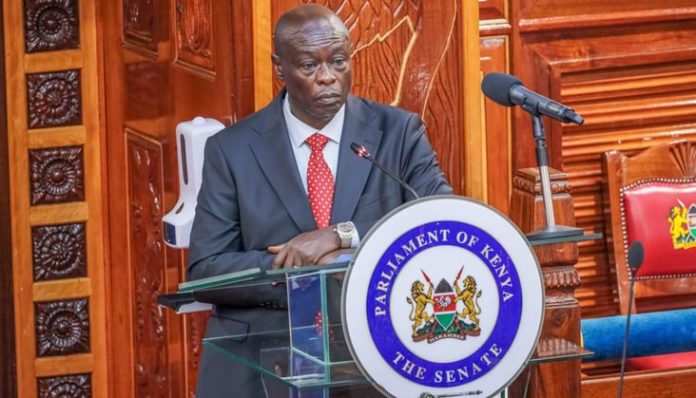Facebook Twitter (X) Instagram Somali Magazine - People's Magazine
Kenya witnessed an unprecedented political event on October 17, 2024, when Deputy President Rigathi Gachagua was removed from office after an impeachment process that has shaken the nation. The Senate voted overwhelmingly in favor of the impeachment, with 54 senators supporting the motion against just 13 opposed. This marked the first time in Kenya’s history that a deputy president has been ousted through an impeachment vote.
Charges and Allegations Against Gachagua
Gachagua faced a litany of charges, with the Senate approving five of eleven accusations, including corruption, abuse of office, and fostering ethnic division. Notably, he was also accused of insubordination for publicly opposing government policies, including his stance against forced evictions during a severe flood that claimed many lives. Additional charges alleged his involvement in supporting anti-government protests that resulted in civil unrest and the storming of Parliament by demonstrators.
The impeachment vote followed proceedings in Kenya’s National Assembly, which also voted decisively in favor of removing Gachagua. Earlier in the week, the Assembly had voted 282-44 for impeachment, a critical step before the Senate’s decision. The Senate needed a two-thirds majority to approve the charges, and it achieved this with a comfortable margin, cementing Gachagua’s removal from office.
Gachagua’s Defense and Hospitalization
The deputy president maintained his innocence throughout the impeachment process, denying all allegations of misconduct. His defense team argued that the charges lacked sufficient evidence and were politically motivated. However, the proceedings took a dramatic turn when Gachagua was hospitalized on the day of his expected testimony due to severe chest pains. His lawyers sought a postponement, but the Senate rejected the request and proceeded with the vote.
Despite his absence, Gachagua’s legal team attempted to separate him from criminal liability, but they were unable to mitigate the political implications of the charges. His lawyers walked out of the proceedings when their plea for more time was denied, signaling the collapse of their defense strategy.
Gachagua and Ruto’s Political Fallout
The impeachment has underscored deep divisions within President William Ruto’s administration. Tensions between the president and his deputy have been simmering for months, and Gachagua suggested during his defense that the president was tacitly supporting the motion against him. Ruto, however, has remained publicly silent on the impeachment, fueling speculation about his role in the events.
Under Kenyan law, President Ruto has 14 days to nominate a new deputy president, who will then need to be approved by the National Assembly. Analysts predict that the president may act swiftly, as the Assembly is expected to hold a special session to address the nomination.
For Gachagua, the path forward is uncertain. While his legal team may challenge the impeachment in court, such a move may be difficult due to time constraints and the fast-moving political developments. If a new deputy is sworn in, it could solidify Gachagua’s removal from office.
This impeachment has sent shockwaves through Kenya’s political landscape, marking a pivotal moment in the country’s constitutional democracy and raising questions about the future direction of its leadership.

